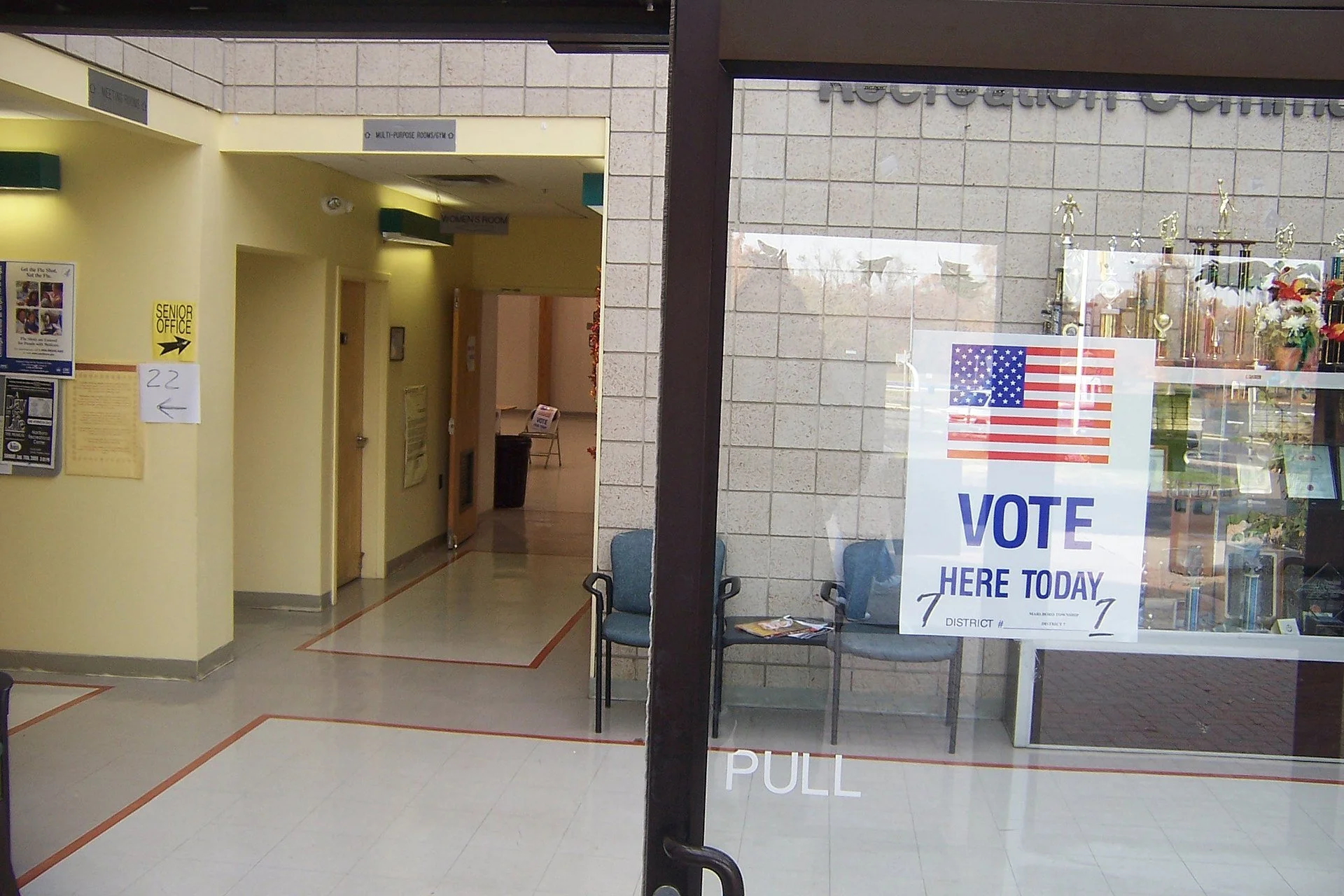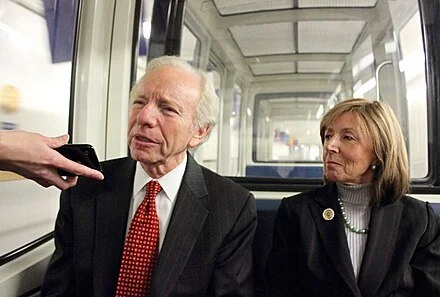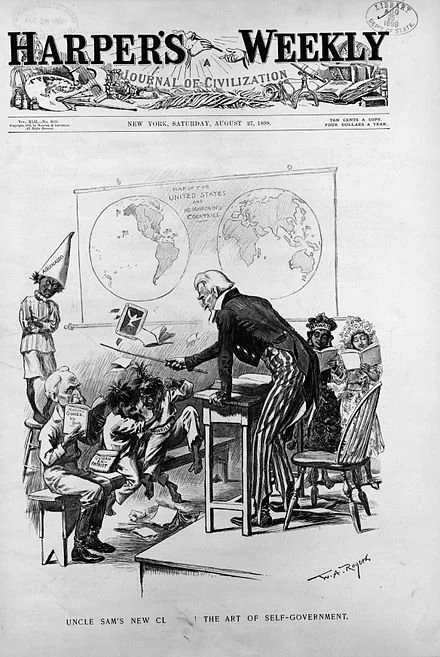Chris Powell: Block housing development and your property taxes may rise
MANCHESTER, Conn.
Blame for rising property taxes in Connecticut may be shared more broadly than most people think. It's not just the fault of elected officials who yield to the demands of special interests, particularly the demands of government- employee unions for higher wages and benefits.
Property taxes are determined in large part by property values, and the great inflation created by the spectacular overspending and over-borrowing by the Trump and Biden administrations and Congress have increased the nominal value of nearly everything, including residential property.
Then there is the flood of illegal immigration. The millions of illegal immigrants admitted in recent years must live somewhere, and the federal government and state government are often subsidizing their housing, causing scarcity. Without so many illegal immigrants and government subsidies for their housing, demand would be reduced, more properties would be vacant, and residential rents, prices and property values would fall.
There is still another cause of housing scarcity and rising property values and taxes: state and municipal policy that restricts supply, such as exclusive zoning and what is called farmland preservation, a politically correct mechanism for preventing housing development. People tend not to associate these policies with rising property taxes, which homeowners pay directly and tenants pay indirectly through their rent.
But maybe the association will be noticed after more periodic municipality-wide property revaluations, such as the ones that New London and Norwich recently underwent.
According to The Day of New London, residential-property values in the little city just rose by an average of 60 percent, and many people are shocked by the corresponding increase in their property taxes, since commercial- property values didn't rise that much if at all.
With employment booming at submarine manufacturer Electric Boat in neighboring Groton, New London and nearby towns especially need more housing. But since the housing shortage, rising property values, and rising property taxes are statewide and national phenomena, any town could facilitate a building boom and still not knock housing values down much.
At least people should take their rising property-tax bills as a reminder not to complain so much about new housing. Obstructing new housing means scarcity, and scarcity means that housing prices will be bid up, taking housing taxes with them.
LEAVE IDAHO ALONE: Abortion rights are more secure in Connecticut than they are in many other states.
Having long ago incorporated into its own law the U.S. Supreme Court's decision in Roe v. Wade, Connecticut leaves abortion unrestricted prior to fetal viability, and even then few seem to be guarding against the abortion of viable fetuses. Connecticut also allows abortions for minors without parental consent, enabling child molesters to erase the evidence of their crimes.
Still, the abortion policies of other states have Connecticut Atty. Gen. William Tong in a frenzy. Lately Tong has been fulminating about Idaho's restrictive abortion law and has even had filed a brief in an Idaho case in federal court, though the case has no bearing on Connecticut.
Speaking of Idaho's law the other day, the attorney general said: "This threat and severe state abortion bans are not going away. We're going to have to keep fighting these fights in every court in every state where patients' lives and reproductive freedom are at risk."
But why? Reversing Roe two years ago, the U.S. Supreme Court didn't restrict abortion anywhere. It just returned abortion policy to the states, restoring some federalism.
Who is Connecticut's attorney general to seek to override democracy in Idaho? Presumably if enough of the women of Idaho wanted their state's abortion law to be like Connecticut's, they could mobilize to achieve it. Apparently many if, not most, women in Idaho want abortion tightly restricted.
No one has to live in Idaho or Connecticut.
And where does the attorney general find the authority to intervene in cases having no bearing on Connecticut? State law confines the attorney general's office to legal matters "in which the state is a party or is interested." Abortion law in Idaho is not a state interest in Connecticut, just a partisan political one.
Chris Powell has written about Connecticut government and politics for many years (CPowell@cox.net).
Chris Powell: Municipalities should be posting their most interesting records
— Photo by Michal Klajban
MANCHESTER, Conn.
Greenwich First Selectman Fred Camillo is sore at people who, he says, make lots of requests for access to town records under Connecticut’s freedom-of-information law. “Some people are abusing the system,” Camillo says, and requesting town records "has been weaponized and we’re getting harassed."
So his administration has begun posting on Greenwich’s internet site the names of all FOI requesters and the subjects of their requests.
This is perfectly legal. No one who requests access to a public record can very well object if his own request is a public record too. But Camillo’s new practice seems meant to retaliate against and embarrass requesters. It’s mistaken and almost surely will fail.
For anyone who is making FOI requests mainly to annoy town officials isn’t likely to be embarrassed in the least by publicity. To the contrary, such people probably will welcome publicity and figure that their renown will help intimidate town officials and employees in the future.
Besides, Connecticut’s FOI law now authorizes government officials to petition the Freedom of Information Commission for relief from a “vexatious requester,” a person whose requests for records are so numerous and redundant as to constitute abuse. While they are few, there are such people and the commission has taken action against some, exempting the government agency being harassed from having to respond to the requester.
So if First Selectman Camillo really thinks that any FOI requester is "abusing the system," he should identify the abuser in a complaint to the FOI Commission, whereupon the commission may call a hearing that may be as much an inconvenience to the requester as the requester’s requests are to town officials.
There’s no harm in posting FOI requests on a town’s Internet site as Greenwich is doing, but there’s not much public service in it either. Indeed, if a municipality or state agency is going to put more effort into posting records on its Internet site, many records would be of far more public interest than FOI requests.
For example, municipalities could post their payrolls as state government does. Some municipal government salaries are extraordinary but overlooked. Excessive overtime for police officers and others is often a scandal.
Municipal employee job evaluations and disciplinary records should be posted too. Those records are where some big scandals are hidden.
While teacher evaluations, alone among all government employee evaluations, long have been exempted from disclosure under state FOI law -- a testament to the influence of teacher unions and the subservience of state legislators to the worst of special interests -- nothing prevents municipalities from disclosing teacher evaluations voluntarily just as municipalities are required to disclose the evaluations of other employees.
With local journalism weakening, these days most municipal governments have little serious news coverage and few if any reporters inspect disciplinary records regularly.
Posting more records about government’s own performance would show the public far more about who is really "abusing the system." Any annoyance to government officials from this greater transparency might be offset by accountability and better management.
SLICING AWAY AT DEMOCRACY: Many people who achieve public office quickly come to realize the truth of the old saying, "To govern is to choose." French President Charles de Gaulle clarified that governing is always "to choose among disadvantages." Of course choosing can be a drag.
So some non-profit social-service groups want Connecticut to impose a special tax on telecommunications services whose revenue would be dedicated to social-service groups.
But why should cell phone or Internet users particularly pay for social services? There’s no causal relationship between telecommunications and social-service needs. It’s just that the social-service groups don’t want to have to compete for state government money as everybody else has to. With a dedicated tax their money would be guaranteed.
If choosing is restricted this way, over time the practice would slice away at democracy and insulate many rcipients of government money. Connecticut has done enough of that already.
Chris Powell has written about Connecticut government and politics for many years (CPowell@cox.net).
Chris Powell: Totalitarian ‘climate-change’ protestors
Climate-change protestors in Germany.
Cromwell Meadows, in Cromwell, Conn.
MANCHESTER, Conn.
When, in 1955, Rosa Parks, a courageous Black woman, refused to give up her seat to a white passenger on a bus in Montgomery, Ala., was arrested, and dramatically advanced the modern U.S. civil-rights movement, the connection between her protest and her objective was clear: to end the racial segregation maintained by the bus service.
When, in 1960, courageous Black college students sat down at the white sections of racially segregated lunch counters throughout the segregated South and refused to leave until they were served, the connection between their protest and their objective was clear again: to end the racial segregation maintained at of lunch counters.
In those protests and many others during that era, the demands of the protesters could be easily granted by the targets of the protest without any loss or harm to anyone.
But what is to be construed from the sort of protest that is erupting in Western Europe and now the United States, such as the protest that disrupted the final minutes of play at the Travelers Championship golf tournament in Cromwell, Conn., two weekends ago? The protesters, wearing shirts with the legend "No golf on a dead planet," ran onto the putting green and sprayed colored powder on it before police intercepted them, took them away, and charged them with criminal mischief.
The protesters in Cromwell want to eliminate oil and natural-gas fuels, in the belief that those fuels are causing devastating "climate change." In other venues such protesters are defacing paintings and statues. But the golf tournament, a major money-raiser for charity, and the defaced paintings and statues have no special connection to fuel use and their operators and custodians have no special responsibility for fuel policy. They don't use oil and gas any more than everyone else does.
Sometimes fuel protesters block roadways, halting traffic. Of course most vehicles use fuel, but most of their operators of the vehicles being blocked use fuel no more than everyone else does.
The fuel issue is a society-wide issue but the targets selected by the fuel protesters are not objectionable by the protesters' own standards, and hindering them won't affect fuel policy. The protesters have selected the targets instead for their capacity to cause annoyance when impaired and thus generate publicity.
But the fuel issue long has been getting plenty of publicity quite apart from the efforts of the protesters. It is a major political controversy in the United States and Western Europe, where it is politically correct to imagine that there are readily available and adequate alternatives to oil and natural gas. But fuel is not a political controversy in most of the rest of the world, and especially not in the developing world, which will be needing not just oil and natural gas but also coal, the dirtiest conventional fuel, for decades to come.
Calculating the benefits and harms of conventional fuels and striking a balance between them is a task for democratic politics. But the fuel protesters are so sure they are right, and so self-righteous, that they claim the right to nullify the rights of all people who disagree with them or don't heed them.
These protests go far beyond civil disobedience. They go far beyond criminal mischief as well. They are totalitarian. and any prosecutor who pursues the criminal charges from the golf tournament, and any court that tries them, should keep this in mind.
MORE SCHOOLS CRASH: Add Stamford to the list of Connecticut cities whose schools are getting out of control.
Teachers at Stamford's Turn of River Middle School say that they are being abused, bullied, threatened, and even assaulted by students, adding that the school administration has failed to report the assaults to the police.
The administration says it will make changes, including adding a third security officer to the school. That officer is needed not to protect the school against outsiders but against its own students, since under Connecticut law even the most disruptive students are almost impossible to expel, lest their feelings be hurt and the public notice social disintegration.
Chris Powell has written about Connecticut government and politics for many years (CPowell@cox.net) .
Chris Powell: What is ‘enough’? One-man crime wave in Conn.
“The Worship of Mammon,’’ by Evelyn De Morgan
MA NCHESTER, Conn.
Connecticut is not just thrilled that UConn men's basketball coach Dan Hurley has declined a lucrative offer from the Los Angeles Lakers. People are also moved by the expressions of loyalty from the coach and his wife, Andrea -- not just loyalty to the state but, as Mrs. Hurley noted in a television interview, loyalty to the players the coach had recruited and who expected to be playing for him next year.
Of course this loyalty was not exactly reciprocated by some of the players on this year's championship UConn team. They are leaving college early for what will be their own lucrative contracts with the pros.
But there's a big difference between the situations of the players and the coach. The players aren't making much if any money and may suddenly earn millions of dollars for each year of early departure. But the coach already is making millions each year, and for having won consecutive national tournaments he is likely to make millions more from UConn with a big raise that will bring his annual compensation close to what the Lakers were offering him.
When one is already earning big money, loyalty isn't the sacrifice lately imagined and cheered by UConn basketball fans, people for whom a night out with the family for dinner and a game is a substantial expense. Indeed, as F. Scott Fitzgerald wrote, "the very rich are different from you and me."
But then there are differences among the rich too.
A recent essay recounted that two financially comfortable guys were discussing a billionaire who had just undertaken a business plan he expected would bring him even greater wealth. One guy boasted to the other: "I have what he'll never have." The other guy asked: "What's that?" The answer: "Enough."
If Hurley has enough for staying put at UConn -- even if "enough" includes a huge raise -- it still may be considered relative loyalty, and Connecticut may be glad of it all the same, but just shouldn't overdo it.
That wasn't a parody of criminal justice in Connecticut on the front page of The Hartford Courant the other day. It was reality that should have been shocking, except that repeat offenders on the loose are now so numerous in the state that few people -- and apparently none in authority -- are shocked.
State police say a 35-year-old Bozrah man with a long criminal record sped through a stop sign in Griswold, ramming another car and killing one of its passengers, Charlotte Degrado, 96, of Branford. The Courant says the offending driver has at least a dozen criminal convictions, has 10 more criminal cases pending against him, and was free because, after being arrested six times since January, he had managed to post $275,000 in bonds.
State police say the driver and his companions in the speeding car ran away after the crash but the driver was apprehended while hiding in nearby woods with a bag of fentanyl pills and $4,693 in cash.
The driver's convictions, according to the Courant, include larceny, burglary, narcotics possession, and engaging police in pursuit, and he has served three prison sentences since 2016 -- 18 months, a year, 90 days. He repeatedly has violated his probations.
If elected officials in Connecticut were more concerned about public safety than in reducing the state's prison population, they might investigate this situation urgently, interviewing every prosecutor and judge involved with the repeat offender's cases. While individually some of his crimes may seem minor, cumulatively they scream incorrigibility.
Could no one in the criminal-justice system perceive this before the fatality? Could no one note the chronic offender's 10 pending cases and realize that speedy trials and maximum sentences would be necessary to halt his crime wave?
Since Gov. Ned Lamont and state legislators don't seem to be taking note of the atrocity, will anyone in journalism confront them about it?
Or will the always dim prospect of reform be left to any efforts made by the dead woman's grieving family?]
Chris Powell has written about Connecticut government and politics for many years (CPowell@cox.net).
Chris Powell: Coaching a college basketball team is easier than legislating
Dan Hurley
MANCHESTER, Conn.
Celebrating Dan Hurley's decision this week to keep coaching the men's basketball team at the University of Connecticut, state House Speaker Matt Ritter confirmed a thought previously reserved for cynics.
That is, UConn's success with basketball is state government's great rationalization for giving the university whatever it wants financially year after year.
Ritter said: "I think there are times when legislators wonder, 'Why UConn? Why higher education?' There were comments about how we were giving so much money to UConn even this year. But Dan Hurley and [women's basketball coach] Geno Auriemma are four million more times popular than the most popular state legislator."
True. But then in a crucial respect the coaching jobs are much easier than those of state legislators -- at least the jobs of legislators who aspire to serve the public interest.
All the coaches have to do to please their constituents is win basketball games. Their players are united on this objective.
The coaches have luxurious contracts that indemnify themselves against failure, as was recently demonstrated by UConn's embarrassing and spectacularly expensive experience with former men's basketball coach Kevin Ollie.
There are no luxurious contracts for state legislators. They are elected for two-year terms with part-time salaries for what is often full-time work or close to it.
Their teams aren't unified. No, their constituents have a thousand objectives, many of them contradictory.
While UConn always gets plenty of money despite its many management failures and financial excesses, state legislators have to find money themselves, first to pay for government and then for their own campaigns.
But most of a legislator's constituents want someone else to pay for the goodies government gives them. As the economist Frederic Bastiat put it long ago, "Government is the great fiction by which everybody tries to live at the expense of everybody else."
And even when the public interest is clear, there is usually a venal special interest with enough politically active adherents to get their way amid the public's obliviousness.
The popularity of Hurley and Auriemma might crash as soon as they had to assemble a state budget or take a position on a controversial policy issue -- say, having 6-foot-4, 240-pound transgender players on high school and college women's basketball teams.
If many state legislators are the tools of special interests, it's because so few of their constituents pay attention that making any friends requires being a tool.
MONEY WON'T FIX SCHOOLS: What exactly does it mean that the state Education Department has instructed its commissioner to look into improving the finances of Hartford's ever-struggling school system?
Certainly there is much to improve. The academic performance of the city's students long has been terrible. Hartford's schools are facing a $40 million budget deficit and laying off hundreds of employees even as the system has tens of millions of dollars of emergency federal aid waiting to be spent.
Republicans in the state Senate have good questions about the state's intervention: Will state money be spent? Will Education Department employees be embedded in the Hartford school administration? Who will make decisions? Will labor contracts be reviewed? Will other struggling school systems in the state get similar evaluations? (They should.)
The most important question here may be whether schools can accomplish much of anything when most of their students lack responsible parents and are largely neglected. Since this may be the most important question, it has never been asked officially.
In any case there is a small indication of progress. Hartford school officials lately have been openly complaining that their schools are being drained financially by tuition transfers required by the regional "magnet" schools craze prompted in the Hartford area by the long-running Sheff v. O'Neill school desegregation case. The magnets are also draining the city's neighborhood schools of their better students. Measured by educational and integrational results, the Sheff case has been a billion-dollar disaster.
Money will never solve the education problem. It's a matter of far bigger issues that politics isn't ready to face.
Chris Powell has written about Connecticut government and politics for many years. (CPowell@cox.net) .
Chris Powell: Silly anti- ‘climate change’ drives in Vermont and Connecticut
MANCHESTER, Conn.
While it may be hard to believe, Vermont seems to have gotten ahead of Connecticut in "climate change" craziness.
The Green Mountain State has just passed a law allowing itself to charge big oil and natural gas companies for the cost to the state of the "greenhouse gases" emitted by use of the fuel sold by the companies between 1995 and 2024. The state itself will choose the criteria for calculating the cost. Mainly Vermont wants to blame the oil and gas companies for the extensive damage done in the state last year by terrible flooding.
Under the new law it won't matter that the fuel products on which "climate change" is being blamed were and remain not just perfectly legal but also crucial to modern civilization. No matter also that nearly everyone in Vermont has been using those products ever since they became available. Vermont wants to blame the manufacturers of the fuel products, not their users, the people for whom those products were made -- the people without whose demand the products wouldn't have been made at all.
Indeed, the mere manufacture of fuel didn't emit the "greenhouse gases" Vermont is complaining about. The use of them did.
Like all other states, Vermont already has a fuel tax. If the state wants to recover what it believes are its costs of the "climate change" caused by use fuel, it can raise that tax and get the money from the parties responsible for their use: its own residents. And if the state really believes that "climate change" disasters are being caused by the use of oil and gas, Vermont already should have outlawed those fuels.
Of course the legislators who passed the law don't really believe its premises. The new law is just a money grab that, if ever implemented, will be nullified in one court or another after years of expensive litigation. But until then legislators who voted for the law will pose as saviors of the environment.
Meanwhile Connecticut's climate alarmists want Gov. Ned Lamont and leaders of the Democratic majority in the General Assembly to put "climate crisis" legislation on the agenda of a special legislative session that is to be called to make a fix in motor vehicle assessment law, a special session that was supposed to be brief.
The "climate crisis" bill at issue passed the House of Representatives during the recent regular session but was stalled by some of the majority Democrats in the Senate who thought that it was more important to guard against climate change by modifying municipal zoning. (The Senate's Republican minority almost certainly would have opposed the "climate crisis" bill, as the Republican minority in the House did.)
After declaring a "climate crisis," the bill would just specify options for reducing "greenhouse gases" by 2050 -- safely beyond the political lifespans of most current legislators. Actual sacrifices would await another day.
Whatever one thinks of "climate change" and its causes -- natural phenomena or manmade phenomena arising only in recent decades -- the "climate crisis" legislation is silly. For even if "climate change" is substantially the result of the use of oil, gas and coal as fuel, Connecticut can do nothing meaningful about it.
The state could outlaw those fuels and shut down all its industry requiring a smokestack and all its transportation requiring a tailpipe and the rest of the country and the rest of the world would continue to use those fuels. Since Connecticut's contribution to the world's "greenhouse gases" is tiny, the state would only disadvantage itself without achieving any measurable reduction in those gases.
Even a national policy of eliminating oil, gas and coal as fuel would have little impact on "greenhouse gases" worldwide, since the developing world, including industrial giant China, will continue to use those fuels until something better comes along. Only a worldwide solution is worth pursuing -- if there really is a problem to solve.
Chris Powell has written about Connecticut government and politics for many years (CPowell@cox.net).
Chris Powell: Innovation is needed to fight poverty and violence; Conn. customer satisfaction
The P.T. Barnum (the circus guy) Museum, in Bridgeport.
MANCHESTER, CONN.
Appalled by the shooting of five people in several incidents in Bridgeport over the Memorial Day weekend, Connecticut Gov. Ned Lamont hurried to the city on May 28 to meet Mayor Joe Ganim and other officials and show moral support.
While Bridgeport's police department is said to be understaffed and to suffer high turnover -- police work may be easier almost anywhere else -- the governor didn't promise any extra help for the city. He thought state initiatives that are already underway with city government are enough for the time being.
In contrast .Mayor Ganim thundered emptily for the television cameras that the city would ensure that the perpetrators of the weekend shootings and other shootings are punished severely. Of course they'll have to be apprehended first.
Just a few hours later four people were shot in an incident in Waterbury. This one didn't prompt a visit from the governor, as the daily business of state government had resumed with the governor's announcement of the allocation of $100 million to the state Economic and Community Development Department for establishing "innovation clusters." This is the euphemism for more political patronage dressed up as economic growth.
If only one of those clusters could figure out how to end gun violence in the cities, or, better still, figure out how to reduce poverty in Connecticut.
Most people in the state -- at least most of those who don't hold elective office -- have noticed that violent crime is closely correlated with poverty. So most people won't be surprised that three of the shootings that appalled the governor took place at the P.T. Barnum Apartments public housing project in Bridgeport and not in exclusive neighborhoods in Darien or Avon. This has been the way of life in Connecticut for many decades.
Nor have the two major state government policies involving poverty changed over that time. Connecticut long has maintained a welfare system that subsidizes childbearing outside marriage and thus deprives children of fathers and the income, discipline, and guidance they provide. The state also long has promoted children throughout school even if they fail to learn anything, thereby destroying their incentive to learn.
These policies have delivered tens of thousands of young people to adulthood largely demoralized and unable to provide for themselves adequately. They are even less able to provide for themselves now that government-instigated inflation has sharply raised the price of necessities. In such circumstances people get stressed, alienated, angry, disturbed, and predatory.
Announcing that $100 million for "innovation clusters," the governor said: "Connecticut has the best-educated and best-trained workforce in the nation. ... We are the home of innovation."
Maybe, but it wasn't the success of an educated and trained workforce that compelled the governor to rush to Bridgeport the other day. The visit was compelled by another deadly manifestation of the state's huge and growing underclass, which still gets no innovation from state government no matter how many lives are lost or damaged.
WE'RE NOT THAT BAD: According to Seattle-based survey firm Qualtrics, the services provided by Connecticut state government produce the second-worst customer satisfaction rate among the 50 states and the District of Columbia, with Connecticut's 51 percent rate leading only that of Illinois with 49 percent.
Are government services in Connecticut really that bad, or are the state residents who responded to the survey just more demanding and would find themselves even less satisfied if they lived elsewhere?
In any case, a customer-satisfaction rate as low as the one reported by the Qualtrics survey would suggest great political dissatisfaction too. But it's hard to find much evidence of that in Connecticut. For many years the same political party has controlled all major state and federal elective offices and has held comfortable majorities in the General Assembly.
Political dissatisfaction? It's hard to find even political competition here.
Of course, some state agencies could be friendlier, but next-to-last in the country in customer satisfaction is almost impossible to believe.
Chris Powell has written about Connecticut government and politics for many years (CPowell@cox.net).
Chris Powell: If you chant ‘Trump!’ enough, Conn. Democrats’ problems vanish
MANCHESTER, Conn.
While Donald Trump can be intemperate, reckless, and megalomaniacal, that is not why he has been so damaging to politics in Connecticut. Trump is most damaging to politics here because he has provided an excuse for so many members of the state's majority party, the Democrats, as well as their allies in the news media, to avoid serious discussion of the many failures of public policy essentially just by chanting: "Trump! Trump! Trump!"
Connecticut has big problems that have not been addressed seriously: education and the declining skill level of the rising workforce, worsening poverty, prohibitive housing prices, state government's indebtedness, a lack of economic and population growth, racial segregation, and taxes that are high even though none of these problems has been alleviated much if at all.
Not that the minority party, the Republicans, necessarily would do much better with these problems. Indeed, the most recent 16 years of Republican state administration (1995-2011) differed from Democratic administration only insofar as taxes didn't go up as much as they might have under a Democratic administration. Of course that's something, but under Republican administration Connecticut's downward trends weren't halted, much less reversed. Connecticut didn't get more value from its government.
While Trump, the presumptive Republican nominee for president, is leading the presumptive Democratic nominee, President Biden, in the recent national polls, nobody expects Trump to carry Connecticut. The state is too Democratic, and just chanting "Trump! Trump! Trump!" here will probably distract enough from the big national issues -- inflation and the economy in general, illegal immigration, and the expensive and unnecessary proxy war in Ukraine and the danger that it will erupt into a European war or even a world war. (A currency war arising in part from the Ukraine war is already being waged.)
The Democratic chant will help sustain the political status quo in the state but it won't make Connecticut great again. For that to happen, many mistaken premises of policy will have to be challenged.
xxx
WHY GO TO SCHOOL?: Last week Gov. Ned Lamont joined a White House conference about chronic absenteeism from school, a problem nationally as well as in Connecticut. Among the participants were U.S. Education Secretary Miguel Cardona, formerly Meriden's school superintendent and Connecticut's education commissioner.
They discussed the slight success in getting children to attend school more often by having school employees call or visit the homes of the chronically absent and asking parents what the problem is and if government can help them solve it.
Warning parents that not getting their children get to school is neglect is not planned. The politically correct presumption is that parents, especially single parents, really shouldn't be held responsible for themselves and their children. Many neglectful parents probably sense this presumption and feel excused.
Connecticut's elected officials should look deeper into the problem, especially since student proficiency in the state has been declining for years. They should ask: What exactly is the incentive for children to go to school today and for parents to get them there?
In the old days social pressure helped get children to school and to learn. For failure to learn risked the embarrassment of being held back a grade.
But no more. For Connecticut's main educational policy long has been social promotion: All students are promoted regardless of academic failure, in the belief that being held back is too damaging to a child's self-esteem -- as if failure to learn is not more damaging when a child grows up.
Meanwhile, the decline in the skill level of Connecticut students, and thus the decline in their ability to support themselves, is being met with more government subsidies for them as impoverished adults, so neglecting one's education is less costly to the individual and more costly to taxpayers.
In the old days most people thought education was crucial to a better life. Today many people seem to think otherwise. So chronic absenteeism may continue until something changes that thinking. Politically correct as it may be, asking negligent parents nicely isn't likely to help much.
Chris Powell has written about Connecticut government and politics for many years. (CPowell@cox.net) .
Chris Powell: Hartford’s new archbishop eyes the poverty factory
Archbishop Christopher J. Coyne
Cathedral of Saint Joseph in Hartford
— Photo by Sage Ross
MANCHESTER, Conn.
When he was installed two weeks ago, Hartford’s new Catholic archbishop, Christopher J. Coyne, said he has several big objectives, though he conceded that with two of them he may be dreaming.
Coyne’s most practical objective is simply restoring the local church and regaining parishioners. "In recent years," Coyne said, "we have given folks no shortage of causes to walk away from the faith -- parish closings, the abuse scandal and associated betrayals by leaders who should have known and done better, and pastoral approaches that at times have done more to judge people than serve them."
The archbishop can’t undo those scandals but he can be candid about them and make sure that the wrath of God quickly falls -- publicly -- on any agents of the archdiocese who betray their trust.
As for unhappy judgments on people, archbishops are stuck with church doctrines that many think contradict modernity, such as the refusal to ordain women or sanction same-sex relationships. Given the conservative bent of the places where the church is growing, those doctrines are unlikely to be changed soon.
Not that modernity is always right. Indeed, the basic Catholic morality of old is less primitive than today’s morality of anything goes. It wasn’t entirely because of religious doctrine, but Connecticut was better before state government started pushing gambling and marijuana on the public and pretending that men can be women and vice-versa.
Sad as Catholic parish closings are, ripping roots out of the community and leaving empty buildings as stark monuments to a vanished era, the decline in church membership requires closings and it has not been caused primarily by the scandals. While spirituality is not dead in the developed world, religious dogma is losing adherents fast. Perceptions of the divine today are much broader.
Fortunately the church has much to offer beyond dogma, starting with the Sermon on the Mount, and evangelical and non-denominational churches are growing. Catholic leaders might study their appeal.
In his inaugural remarks, the new archbishop noted that parish and school closings have left the church with many buildings that might be converted to inexpensive housing, of which Connecticut is desperately short. Of course this is easier said than done. While nearly everyone purports to want the state to have more housing, nearly everyone wants it built somewhere else. The fear of the underclass is real and often justified, as indicated by violent crime and terrible school performance in the cities.
The new archbishop has an idea about his new city, Hartford, a poverty factory where two high school students were shot to death the other day. His dreamiest objective is to restore Catholic schools in the city -- there are none left -- and make them tuition-free.
The excellence of Catholic schools is generally acknowledged. The schools have behavioral discipline and academic standards, which now are virtually prohibited in public schools. Unlike public schools, church schools can choose their students, but they use this freedom not to exclude but to pursue the most motivated students and parents.
Thus church schools can offer students an escape from the demoralization of city life, and with their better environment they can retain good staff while paying less than public schools.
Regional public "magnet" schools offer some escape as well but are still somewhat impaired in discipline and academic standards. They also impose more transportation burdens on students and parents than neighborhood schools.
In any case, as indicated by the litigation of the past quarter century over school segregation in Hartford, the city and other cities in Connecticut can use much more school choice. The return of Catholic schools could help provide it, but avoiding tuition would require money from somewhere.
A scholarship program from state government might provide it and educate students better and less expensively than government’s own system, but the teacher unions would never consent, and they run government in Connecticut. They have no interest in improving student performance, reducing poverty, and saving money. Only dreamers care about such stuff. Good for the new archbishop for being one.]
Chris Powell has written about Connecticut government and politics for many years (CPowell@cox.net).
Chris Powell: Don't leave looted Conn. hospitals' fate to a big game of chicken
“The Worship of Mammon,’’ by Evelyn De Morgan (1909).
MANCHESTER, Conn.
A big game of chicken may determine what becomes of Waterbury (Conn.) Hospital, Manchester (Conn.) Memorial Hospital, and Rockville General Hospital, in Vernon, Conn.
Yale New Haven Health, which two years ago agreed to buy the three struggling hospitals from Prospect Medical Holdings for $435 million, now is suing Prospect to nullify the agreement. Yale New Haven Health contends that Prospect has substantially impaired the hospitals by mismanagement since the agreement was made.
Prospect's Connecticut hospitals were already in terrible financial condition, most of their equity having been stripped from them and liquidated by their parent company, Leonard Green and Partners, a private-equity investment firm based in California. The Prospect hospitals no longer own their own real estate but must pay rent to a real-estate company.
Connecticut law never should have allowed nonprofit hospitals, which Waterbury, Manchester and Rockville were, to be acquired by investment companies like Prospect. The state now has a big interest in keeping the hospitals operating, restoring their solvency, and returning them to nonprofit status.
But Yale New Haven Health has a big interest in not overpaying for an operation that may be on the verge of collapse and bankruptcy. After all, Yale New Haven Health runs four hospitals in Connecticut, all nonprofits, and they could be critically weakened if their parent company pays too much for the Prospect hospitals.
As the condition of the Prospect hospitals deteriorated after Yale New Haven Health agreed to acquire them, Yale New Haven Health asked state government to subsidize its purchase by $80 million. Gov. Ned Lamont didn't want to do that and urged the two sides to keep negotiating. But with the acquisition unfulfilled after two years and the lawsuit charging bad faith, negotiations have failed and seem unlikely to resume soon. The Prospect hospitals are far behind in paying bills and state and municipal taxes. They may not have any net worth left at all.
But the Prospect hospitals serve large communities and their closure would be a disaster for Connecticut. Other hospitals are not prepared to take up the displaced patient load, and even if they could handle it, many patients of the failing hospitals and the doctors who treat them would have far to travel. The disruption to medical care in the state would be immense. Despite Prospect's awful ownership and top management, its hospitals employ hundreds of dedicated professionals striving to provide excellent care under worsening financial stress.
State government's financial intervention in support of an acquisition by Yale New Haven Health strikes many as the obvious solution.
But a state subsidy for the purchase will ratify Prospect's looting of its three hospitals and the real-estate company's purchase of the hospitals' property. The real-estate company now may think it has decisive leverage over whoever acquires the hospitals and intends to keep them operating. But if the hospitals fail and go out of business, their buildings probably would lose much of their value, since they have practical use only as hospitals.
The best mechanism for saving the hospitals may be to let them fail and go into bankruptcy. Bankruptcy is exclusively a federal court process but with the court's approval state government could become a party to the case and assist the financial reorganization of the hospitals from the moment of their bankruptcy filing. Bankruptcy could relieve the hospitals of their burdensome property rental obligations.
In any case state government should do more than what it long has been doing about this problem -- just hoping that Yale New Haven Health and Prospect will work things out eventually before the Prospect hospitals collapse and close. Hope is not a strategy or plan.
So the governor should assemble a team ready to assist a bankruptcy proceeding, the General Assembly should make millions of dollars in an emergency loan available to a new owner of the hospitals, and the legislature and governor should give Connecticut a law to prevent nonprofit hospitals from falling into the hands of predators ever again, and thus to prevent the theft of decades of community charity that state government's negligence allowed here.
Chris Powell has written about Connecticut government and politics for many years (CPowell@cox.net).
Chris Powell: The wild ‘Kia Boyz’ may represent Conn.’s grim future
Downtown Bridgeport in 1912. Bridgeport was an industrial powerhouse for decades.
MANCHESTER, Conn.
What may prove to be Connecticut's best journalism for many years was a 44-minute video documentary of sorts posted last week on YouTube by freelancer Andrew Callaghan and brought to the state's attention by CTCapitolReport.com.
Callaghan gained the confidence of three teenage gangsters from Bridgeport and video-recorded them on their daily rampages -- breaking into and stealing cars day and night throughout the state, speeding away wildly along highways and residential streets, risking death and the death of others, defeating police pursuit, and boasting that no one can catch them.
Of course the young gangsters might be caught, insofar as Callaghan repeatedly located them and even joined them at a government housing project in Bridgeport, where, he found, stolen cars are regularly being "sold" to other young gangsters for a mere hundred dollars or so, the contents of the cars having more value than the cars themselves, which are soon abandoned since they can't be acquired legally.
Apparently the Bridgeport police were not yet aware of or interested in the use of the housing project as a stolen car market. Nor, apparently, was Mayor Joe Ganim, though his recent re-election campaign was noted for soliciting absentee ballots from public-housing residents who may have feared that keeping their apartments required such cooperation with the regime.
Despite the harm they were doing, the kids seemed more lost and nihilistic than evil, glad that someone from another world was paying attention to them. As they sat on the roof of a small abandoned house, taking a break from their mayhem, Callaghan even got them to reflect briefly on their lack of parenting and particularly their lack of present fathers.
The young gangsters call themselves the Connecticut Kia Boyz, since most of their target vehicles are Kias, which became notorious for the ease of bypassing their ignition systems with a screwdriver and USB cable.
It is hard not to see the Kia Boyz as the country's future -- the vanguard of the ever-growing urban underclass, products of the family-destroying welfare system; of schools that pay their employees well but fail to educate because they can't educate when their primary policy is social promotion and parents are no help; and of a criminal-justice system that pretends that social work actually works and is preferable to imprisoning young repeat offenders, giving them what feckless state legislators call "the help they need" without ever defining or delivering it.
What the Kia Boyz and the hundreds of thousands like them around the country need most is parents. But no one in authority in Connecticut dares to inquire into what has happened to parents and particularly to fathers, and why. That's because such an inquiry might distress the many government employees and others who make their livings doing what doesn't work or even makes things worse.]
Anyone daring to inquire into the collapse of the family would also risk accusations of racism, since fatherlessness and poverty are racially disproportionate,.
So the country's nearly comprehensive abandonment of behavioral standards continues, worsened by the crushing pressure imposed on schools, hospitals, welfare agencies and government budgets by the millions of immigrants illegally entering the country in recent years.
Daniel Patrick Moynihan, the social scientist who became a great U.S. senator from New York, saw it all coming in the famous 1965 report that bears his name.
Moynihan wrote: "From the wild Irish slums of the 19th-century Eastern seaboard to the riot-torn suburbs of Los Angeles, there is one unmistakable lesson in American history: A community that allows a large number of men to grow up in broken families, dominated by women, never acquiring any stable relationship to male authority, never acquiring any set of rational expectations about the future -- that community asks for and gets chaos. Crime, violence, unrest, disorder -- most particularly the furious, unrestrained lashing out at the whole social structure -- that is not only to be expected; it is very near to inevitable. And it is richly deserved."
Six decades later Moynihan's prophecy is still ignored even as new horrors fulfill it almost every day.
Chris Powell has written about Connecticut government and politics for many years (CPowell@cox.net).
Chris Powell: More absentee ballots means more election corruption; boffo at Bradley
MANCHESTER, Conn.
Judging by voter participation in Connecticut's most recent municipal elections, Hartford may be the most demoralized place in the state.
The Hearst Connecticut newspapers report that only 14 percent of Hartford residents who are registered to vote did so in last year's municipal election, when the city had the lowest voter participation among all Connecticut municipalities. The city's voter participation rate is actually far worse than reported, since, as with all other municipalities, many eligible residents don't even register to vote.
What is the City Council's idea for curing this civic demoralization? It's to diminish election security by mailing absentee-ballot applications for future elections to all residents on the voter rolls.
Of course, absentee ballots have been at the center of the recent election-corruption scandals in Bridgeport, where absentee ballot applications have been pressed on people who did not apply for them and completed absentee ballots have been stuffed by political operatives into unsecured ballot deposit boxes.
Absentee ballots are a necessity of democracy, but for election security their use should be minimized, not increased. For the more a voter is separated from the in-person casting of his vote, the more potential there will be for corruption. Requests for absentee ballots should be scrutinized for validation as much as the casting of completed ballots in person should be.
The Republican minority in the General Assembly is serious about this issue. The Democratic majority is not.
The Republicans propose to outlaw the mailing of unsolicited absentee-ballot applications, to require people voting by absentee ballot to include a copy of an identification document bearing a photo, to require municipalities to provide voters with photo identification without charge, the cost to be reimbursed by state government; to require municipalities to update and audit their voter rolls regularly, and to suspend use of absentee ballot deposit boxes, since the U.S. mail can do the job more securely.
xxx
PLEADING POVERTY: Should poor people have to obey the law in Connecticut? Legislation approved by the General Assembly's Judiciary Committee suggests that poverty should confer exemption from the law.
The legislation, sponsored by four Democratic state representatives, would forbid the suspension of driver's licenses for people who have failed to appear in court as ordered or who have failed to pay fines. Suspension of the driver's licenses of people who ignore court orders and judgments has been an incentive for obeying the law.
The rationale of the legislation is that poor people are less able to take time off from work to attend court and less able to pay fines, and of course they are. But if poverty is to excuse people from respect the law and the courts, why should they obey any law at all?
Connecticut's courts already carry hundreds of cases of failure to appear. If the Judiciary Committee's legislation is enacted, the state is sure to experience much more contempt for law and an ever-growing inventory of "failure to appears" -- and somehow the Democrats will call it justice.
At Bradley International Airport
DILLON IMPROVED BRADLEY: In recent years Connecticut has put many millions of dollars into Bradley International Airport. Though the correlation between spending and improvement in state government is usually weak, the airport has improved much since the Connecticut Airport Authority was created to operate it and the other state-owned airports in 2013.
For the 11 years since then Kevin A. Dillon has been the authority's executive director, overseeing a great expansion of service at Bradley -- more international and nonstop flights, more airlines, better facilities, and more passengers, though the passenger total from the year prior to the virus epidemic has not quite been surpassed yet.
Bradley makes a huge contribution to Connecticut's economy, its business environment, and quality of life, for which Dillon must be credited. He plans to retire early next year. Before he leaves the authority should name something after him.
Chris Powell has written about Connecticut government and politics for many years (CPowell@cox.net).
Chris Powell: Mental illness isn’t a problem of shortage of treatment
At Connecticut Valley Hospital, in Middletown, Conn., a public hospital operated by the state of Connecticut to treat people with mental illness. Opened in 1868, it was historically known as Connecticut General Hospital for the Insane and is in a 100-acre historic district listed on the National Register of Historic Places.
MANCHESTER, Conn.
When confronting a problem most people instinctively look first for its cause and try to eliminate it.
But such logic doesn't apply so much in government, as indicated by government's response to what is reported to be an explosion of mental illness among young people.
Teachers and school administrators throughout Connecticut say many more of their students are seriously troubled these days.
The commissioner of the state Mental Health and Addiction Services Department, Nancy Navaretta, reported the other day that one in seven teenagers is mentally ill and that suicide is the second-leading cause of death for 10- to 24-year-olds. State government's child advocate, Sarah Eagan, added that 48 Connecticut children between the ages of 10 and 17 killed themselves from January 2016 through September 2022.
So members of Congress, including Connecticut's U.S. Reps. Rosa DeLauro and Jahana Hayes, are sponsoring what they call the Expanding Access to Mental Health Services in Schools Act, which aims to put counselors or clinics in more schools. Educators and social-service people in the state are cheering them on.
But even if the legislation was enacted immediately it would be many years before it had any effect on the problem. For the legislation just sets up a federal agency for overseeing the training, qualifications, assignment, and compensation of school mental health counselors.
The legislation would appropriate no money at the outset. Money might be appropriated eventually, though like everything else at the federal level these days, money for mental health would have to get in line behind money meant to continue the war in Ukraine and support illegal immigrants.
So government might be far more helpful if it investigated the causes of the increasing mental illness of young people. Exactly why are so many more young people becoming mentally ill?
At a recent gathering at a school in Waterbury, Representative DeLauro attributed the mental illness epidemic to bullying, stress, isolation, and social media.
But young people always have faced bullying, stress, and isolation. Youth is the primary time of life for apprehension, depression, and mental disturbance. So why have the causes of mental illness in young people become so much worse in recent years?
Schools are notorious for failing to act effectively against bullying, perhaps because political correctness does not permit seriously disciplining students for misconduct. With a little political courage, school policy could be changed.
Social media are new, but parents can disconnect their children from social media by restricting their use of mobile phones.
Other causes of stress among children and society generally are easy to see, at least if you're not a member of Congress. In recent years inflation has been worst with the top two necessities of life, food and housing. Food banks and housing authorities in Connecticut report that food and housing inflation have made many people desperate and that even fully employed people are having much trouble supporting themselves and their families.
But few members of Congress, and none from Connecticut, take any responsibility for inflation and the stress it has put on society. Members of Congress are content to congratulate themselves for the patronage goodies they are distributing that have been purchased not with tax money but borrowed money, money that the country never will be able to repay.
Parenting was already declining throughout the country long before government's inflationary response to the recent virus epidemic. A third or more of American children are growing up without a father in their home, thus lacking the moral, emotional, and financial support a father ordinarily would provide. Impoverishing many of these households, inflation has weakened the parenting of many more children.
Mental illness among young people might be addressed directly by aiming at its causes -- by knocking inflation down sharply and ending the welfare system's subsidies for childbearing outside marriage.
But instead advocates of the Expanding Access to Mental Health Services in Schools Act envision a lot more government employment and regulation, as if the bigger problem is the shortage of treatment for mental illness and not the explosion of mental illness itself.
Chris Powell has written about Connecticut government and politics for many years (CPowell@cox.net).
Chris Powell: Lieberman often brilliantly navigated around the political shoals
Sen. Joe Lieberman and his wife, Hadassah, riding the United States Capitol subway system in 2011
MANCHESTER, Conn.
Joe Lieberman was Connecticut's most consequential politician of his era, holding high office in the state for 40 of the 42 years between 1971 and 2013, 24 of those in the U.S. Senate. He was also often an insurgent and sometimes crossed his party's establishment in a big way but got away with it, probably because he was calm and genial and quietly exuded integrity even when causing controversy.
Lieberman's involvement in politics began in New Haven with the anti-Vietnam war campaigns of 1968 and 1970, when he was not long out of Yale University. He shocked observers by winning a primary against the state Senate's Democratic majority leader, Edward L. Marcus, of New Haven, who had been distracted by his campaign for U.S. senator.
Instantly Lieberman was a star. Soon he was Senate Democratic majority leader. His ascent was stalled by his defeat for the U.S. House from the New Haven district in 1980 after a terrible campaign. But he remained so well regarded that he easily won the party's nomination for state attorney general, in 1982, whereupon he transformed the office into what it is almost everywhere now -- a noisy platform as "the people's lawyer," hectoring and suing bad guys and gaining spectacular publicity if not spectacular results.
The attorney general's office offered Lieberman a double opportunity -- not just for constant publicity but also, in 1988, for challenging Connecticut's Republican U.S. senator, Lowell P. Weicker Jr., without having to risk losing the attorney general's office, where his term extended to 1990.
After three terms in the Senate Weicker had a national reputation, gained first by denouncing President Richard Nixon, a fellow Republican, amid the Watergate scandal, then by slighting Republicans in other situations as Connecticut became more Democratic. Republicans resented renominating Weicker and Lieberman saw his chance. Since his liberal credentials were solid, he struck some conservative poses to appeal to Republicans sick of Weicker, who notably included National Review editor and columnist William F. Buckley Jr., a Connecticut resident.
Republican defections to Lieberman were probably decisive, as he won by just 10,000 votes, seven-tenths of a percentage point.
In the Senate Lieberman was a reliably liberal Democratic vote, and he easily won re-election in 1994. But in 1998 he had the nerve, rare among Democrats, to scold President Bill Clinton, also a Democrat, for his affair with an intern in the White House. While Lieberman voted against Clinton's impeachment, his criticism of a president from his own party was taken as evidence of integrity. So when the Democrats nominated Vice President Al Gore to succeed Clinton as president in 2000, Gore chose Lieberman as his vice-presidential running mate in large part to signify some independence from Clinton.
Gore and Lieberman won the popular vote but lost the electoral vote. Lieberman simultaneously ran for re-election to the Senate in Connecticut and easily won again.
Lieberman's support for the U.S. war against Iraq in pursuit of imaginary "weapons of mass destruction" cost him renomination by the Democrats in a primary in 2006 narrowly won by Ned Lamont, now governor. But running as an independent and receiving most Republican votes, Lieberman easily won re-election and remained in the Senate Democratic caucus.
The next year Lieberman supported Republican Sen. John McCain for president over the Democratic nominee, Barack Obama. Still the Senate Democratic caucus didn't dare expel him.
Lieberman worked well enough with Obama, though he has been blamed or credited for keeping a "public option" out of the "Obamacare" national health-insurance legislation, something perhaps to be expected from a senator from a state with a big insurance industry.
Lieberman retired from the Senate in 2013, but when he died March 27 at 82 he was still much involved in politics through the No Labels movement, trying to recruit a presidential ticket to provide an alternative to the awful Joe Biden and Donald Trump. In any event, No Labels gave up that effort.
Chris Powell has written about Connecticut government and politics for many years (CPowell@cox.net).
Chris Powell: Hartford doesn’t need hockey and state’s ‘values’ don’t help
At the XL Center, in Hartford.
— Photo by Enterprise8875
MANCHESTER, Conn.
Some people think that Hartford's decline began in 1997, when the city's National Hockey League team, the Whalers, left for North Carolina. Gov. Ned Lamont seems to be one of them, though the city's plunge into poverty and dysfunction started at least 30 years earlier.
For a few years in the 1980s and '90s the Whalers did manage to fill some downtown Hartford restaurants and bars on game nights as the team played at the Hartford Civic Center Coliseum. But most Whalers fans were suburbanites who quickly went back home, doing nothing to improve the city's demographics. Even with a National Hockey League team the city kept losing its middle class.
Maybe NHL hockey could help Hartford a little more now since, thanks to a bailout from state government, the city has built a lovely minor-league baseball stadium near the coliseum, renamed the XL Center. With baseball in the warmer months and hockey in the colder ones, and with the housing the city is striving to restore downtown, maybe more middle-class people could be induced to live in the city again.
But hockey is an acquired taste and the governor's enthusiasm for it in Hartford is not supported by history. The Whalers seldom filled their arena and the joke was that each game was like a Grateful Dead concert -- the same several thousand people.
When the other day the governor said his administration is “ready” for the return of big-league hockey to Hartford at the XL Center, with the possible relocation of the Arizona Coyotes, he couldn't have been serious. While state government is appropriating $100 million to renovate the arena, the project already is expected to run $40 million over budget, and a new team's likely demand for government subsidies has not been acknowledged, much less addressed.
Indeed, in 1996, as the Whalers demanded that state government build them a new arena even as they couldn't fill the one they had, the Journal Inquirer calculated that between financial bailouts of the team, discounted and unpaid state loans, and free use of the coliseum, state government was subsidizing the team by $32 per ticket sold, or $1,400 per spectator per season. This shouldn't have been surprising, since the Whalers had only three winning seasons out of 18 in the NHL. (The Coyotes have had only two winning seasons in their last 10.)
How much per ticket will Connecticut have to subsidize another round of NHL hockey in Hartford, and where will the money come from? The remnants of state government's federal emergency money are already being claimed many times over.
Improving Hartford's demographics is a worthy project, but hockey isn't likely to accomplish even a tiny fraction as much as a few new supermarkets would, and subsidizing new supermarkets for a while probably will be necessary to make the city's notorious “food desert” bloom.
Like other Southern states, North Carolina has been enjoying more economic and population growth than Connecticut, but three Democratic state senators here have an idea for reversing the trend.
They note that North Carolina's Republicans have given their nomination for governor to Lt. Gov. Mark Robinson, a nutty Bible thumper, so the Democratic senators -- Senate President Pro Tem Martin M. Looney, Majority Leader Bob Duff, and Deputy Senate President Joan Hartley -- have urged Connecticut's economic development commissioner to appeal to North Carolina businesses to flee their state's impending nuttiness by moving here.
Duff says, "A lot of people come to Connecticut because they like our values."
Unfortunately those "values" lately include government employee union control of public finance, high taxes, high electricity prices, ever-increasing mandates on business, nullification of federal immigration law, racial preferences, abortion of viable fetuses, boys impersonating girls in sports, sex-change therapy for minors, the concealment by schools from parents of the gender dysphoria of their children, pervasive euphemizing, and politics less competitive than Russia's.
Bible thumping may be easier to live with.
Chris Powell has written about Connecticut government and politics for many years (CPowell@cox.net).
Chris Powell: More discipline would mean less racism in schools
Harper's Weekly cover from 1898 shows a caricature of school discipline.
MANCHESTER, Conn.
Cromwell, Conn., lately has been convulsing over a student's at-first anonymous public complaints about racist or abusive conduct by other students in school.
What was the first action taken in response by the school administration and the town's Board of Education? Of course it was to hire a consultant -- an expert in "diversity, equity, and inclusion."
Cromwell's school officials may have been surprised to discover that children can be bratty and even vicious quite apart from anything related to "diversity, equity, and inclusion." Any personal characteristics can be targeted by childish brattiness and viciousness. Race is just one of many such opportunities.
Nobody who has spent time with children needs a "diversity, equity, and inclusion" consultant to know that. But such a consultant will just help school officials look sincere.
If school officials were ever really sincere about misbehavior by students, instead of hiring a consultant they might make it a practice to have every student interviewed confidentially every month by a teacher, administrator, or guidance counselor and asked about any problems they were having in school. At these interviews students would be instructed in or reminded of the necessity of decent behavior and the penalties for misconduct.
Each meeting would be summarized in writing by the interviewer and the student would be invited to add his own comment before both acknowledged the summary in writing and the summary was placed in the student's file. Specific complaints by a student would be promptly investigated. Due process would be provided and formal judgment issued, and upon any finding of misconduct, punishment imposed on the perpetrator.
Schools in Connecticut have a miserable reputation on their response to bullying, perhaps because discipline in school has become politically incorrect, which may be the precursor to much of the racism and misconduct being complained about lately.
But the problem of bratty and vicious kids and ineffective school administration is an old one, and the General Assembly may be even more oblivious to it than Cromwell seems to be.
After testimony from parents, teachers, psychiatrists, and others about hateful conduct among school children, the legislature's Committee on Children recently proposed legislation to appoint a "task force" to study it. Apparently the need for more discipline in school has not occurred to the committee.
Some Democratic legislators have soared beyond obliviousness on the issue. They have proposed legislation to prohibit colleges and universities from questioning applicants about any criminal records and discipline for misconduct in high school. That's the Democratic Party's approach to crime generally these days: to conceal it in support of claims that crime is down as society disintegrates.
One hardly needs to consult an expert in "diversity, equity, and inclusion" to figure out what will happen when word reaches high school students about the law forbidding colleges and universities from questioning applicants about their misconduct. Misconduct will be liberated.
It's still early in the legislative session and craziness like the college legislation may be weeded out. But given the legislature's far-left Democratic majority, it's just as likely that the college legislation will be amended to impose fines and prison time on any admissions officer who asks an applicant if he has murdered anyone lately.
MORE HIDDEN FEES: Connecticut Gov. Ned Lamont has a great idea. He wants the General Assembly to pass legislation to prohibit hidden fees on event tickets, hotel and short-term rental bills, and food and beverage sale and delivery services, "fees that are tacked on at the end of a consumer's transaction."
But why stop there? For the biggest perpetrator of hidden fees in Connecticut is state government itself.
It's not just the "public benefits" charges concealed in electricity bills -- transferring to paying customers the cost of electricity used by customers who don't pay, along with charges for government undertakings irrelevant to electrical generation.
It's also the wholesale tax imposed on fuels and the cost of state mandates on medical insurance, health care, and municipal government, costs passed along discreetly to customers and taxpayers.
Concert tickets are the least of the scam.
Chris Powell has written about Connecticut government and politics for many years (CPowell@cox.net).
Chris Powell: A heavy discounting of outrageous crime in Conn.; teachers aren’t underpaid
MANCHESTER, Conn.
Next time the governor and state legislators boast about the decline in Connecticut's prison population, remember the recent report in the Hearst Connecticut newspapers about the state Board of Pardons and Paroles.
By a vote of 2-1 after a hearing in January, the board approved parole for a Bridgeport man who had served only 26 years of a 60-year sentence for an especially outrageous crime in 1995. He kidnapped a 16-year-old girl from her home in Pennsylvania and took her to Bridgeport, where he imprisoned her for weeks, molesting her, stabbing her, burning her with a cigarette, and mutilating her, carving his name into her chest with broken glass.
Of course the perpetrator already had an extensive criminal record. For years after his conviction he denied the crime and brought fruitless appeals. He accepted responsibility only when seeking parole.
Prosecutors opposed his application but the board granted it in large part because he had participated in various programs in prison. His victim said she did not oppose parole but is still recovering from her ordeal and just wanted it to be over.
Connecticut should want such hefty discounting of criminal justice to be over. But it won't be over any time soon.
While there is no constituency at the state Capitol for improving the ever-declining performance of students in Connecticut's public schools, there is a huge constituency for spending more money in the name of education even as student enrollment declines. That constituency is so large that no one at the Capitol dares to talk back to it even as it spouts nonsense.
More nonsense came the other day from Kate Dias, president of the state's largest teacher union, the Connecticut Education Association. "The critical thing to remember," Dias told education money seekers at the Capitol, "is we've never fully funded education."
But exactly what is "fully funded"? Dias didn't say, but "fully funded" seems to mean whatever the teacher unions want.
If education was "fully funded," Dias added, "my teachers wouldn't have a starting salary of $48,000. ... We've never actually done the really hard things that we need to do that would allow our teachers, our pre-K, everyone to make reasonable middle-class wages in Connecticut."
Teachers in Connecticut aren't middle class? According to the CEA's national affiliate, the National Education Association, the average teacher salary in Connecticut is $81,000, which doesn't count excellent benefits and much time off during the summer.
And if Dias is sore about an average starting salary of $48,000, that may be the fault of teacher unions themselves for negotiating contracts that allocate most increases in school spending to people who are already employed and union members. Why raise salaries for people who aren't paying union dues yet?
Where is the elected official or political candidate who dares to ask how increases in education spending correlate with student performance, or how student performance correlates with anything beyond family income and parenting? Any such elected official or candidate soon would find scores of teachers in his district vigorously supporting his opponent's campaign.
Indeed, that seems about to happen to state Sen. Douglas McCrory, D-Windsor, an administrator with the Capitol Region Education Council, who -- remarkably, since he is a Democrat -- may be the General Assembly's most vocal advocate of charter schools and school choice.
McCrory is being challenged for renomination by a school board member in his home town and by an official of a union that represents school employees in Hartford.
More than improving education, McCrory's opponents may want to make sure that schools don't ever have to compete for students -- that school choice is limited to families who can afford private schools.
Special interests are political machines that are very good at getting their people to vote. The public interest has no political machine.
Chris Powell has written about Connecticut government and politics for many years (CPowell@cox.net).
Chris Powell: What about respecting ‘diversity’ of views on abortion?
“The Genius of Connecticut,’’ by sculptor Randolph Rogers, a plaster version of the bronze statue (destroyed) originally mounted on top of the dome of the Connecticut Capitol, is exhibited on the main floor.
Soviet poster c. 1925, warning against midwives performing abortions. Title translation: "Miscarriages induced by either grandma or self-taught midwives not only maim the woman, they also often lead to death."
MANCHESTER, Conn.
Where is it written that the crazier Alabama, Texas, or Idaho get, the crazier Connecticut must get too?
But that seems to be the premise of the leftist faction of the Democratic majority in the General Assembly when it comes to abortion.
Alabama lately became famous for the Bible-thumping decision of its Supreme Court that, as a matter of law, frozen human embryos must be considered children. Freed by the U.S. Supreme Court's reversal two years ago of its 1973 decision in Roe v. Wade, Alabama and other right-wing states have virtually outlawed abortion, many of them with the support of a majority of their residents.
But Connecticut law on abortion is unaffected. Connecticut maintains the policy articulated by Roe: that abortion is legal prior to the viability of the fetus and that state government may restrict abortion afterward. As a practical matter, Connecticut also allows the abortion of viable fetuses if a pregnant woman and her doctor claim the law's mental-health exception for late-term abortions. No one challenges such claims.
That's still not enough for the many abortion fanatics among Connecticut's Democratic state legislators. They reportedly are about to propose an amendment to the state Constitution establishing a right to abortion at all stages of gestation. They already have proposed legislation to force medical providers to provide abortion services even if doing so violates their consciences or religious beliefs. Such a law would force the most sincere providers among them to leave the state if they would continue their careers.
The nominal rationale for the constitutional amendment is that someday public opinion in Connecticut may turn in favor of banning abortion. Nobody really believes that but such an assertion builds the political hysteria desired by the all-abortion, all-the-time movement.
The nominal rationale for the legislation forcing medical providers to violate their consciences or religious beliefs is that some rural areas of the state are an hour or so distant from abortion clinics -- as if some rural areas of the state aren't also distant from supermarkets, dentists, restaurants, bars, police stations, and all sorts of conveniences, and as if people don't account for this when choosing where to live.
The real rationale for the legislation is to stamp out contrary consciences and religious beliefs. Ironically, the people doing this stamping out tend to be the same ones who prattle about the benefits of "diversity." That is, it's great if people look different as long as everyone thinks and votes the same way.
If you believe that there is something worth respecting in a viable fetus -- an unborn child capable of living outside the mother's womb -- get lost. There can be no “diversity” for you.
xxx
STOP HIDING CRIME: Figuring out what to do about former criminal offenders is a challenge.
State law already holds that part of the solution is to conceal many convictions. Now the General Assembly is considering whether to prohibit landlords from considering convictions more than three years old when evaluating potential tenants.
Criminal convictions follow people around and can burden them for a long time. But then why shouldn't they? Why shouldn't former offenders have to do more to prove themselves than people who have never caused trouble? Why should prospective landlords, employers, and romantic partners be obstructed in protecting themselves? Why should landlords and employers be obstructed in protecting their tenants and employees?
While the labor shortage may be reducing the reluctance of employers to hire former offenders, the housing shortage is worsening their plight. But the employment and housing problems faced by former offenders actually arise from something bigger than their criminal records: their lack of education and job skills, which often correlates with crime.
Concealing criminal records helps former offenders only by increasing risk to everyone else. So the only fair solution is to improve education and facilitate housing construction. Since that's not likely to happen in Connecticut, state government should operate more halfway houses for former offenders as they rebuild their lives.
Chris Powell has written about Connecticut government and politics for many years(CPowell@cox.net).
Chris Powell: Ban investors from taking over and looting charitable hospitals
“The Cunning Thief,’’ by Paul-Charles Chocarne-Moreau, depicting a thief about to steal a baked good.
MANCHESTER, Conn.
Connecticut Gov. Ned Lamont and state legislative leaders have not yet completed their health-care proposals for the new session of the General Assembly but they should include legislation forbidding the sale of nonprofit hospitals to profit-making entities.
Many nonprofit hospitals in Connecticut have been acquired in recent years by large nonprofit chains, such as Hartford HealthCare and Yale New Haven Health, and so may not be vulnerable to acquisition by profit-making entities. But many other nonprofit hospitals in the state may be -- the ones owned by smaller chains of nonprofits and the few nonprofit hospitals that remain independent.
Good luck to anyone who can start a private hospital and make money from it. But state government must protect the nonprofit hospitals insofar as they have been built over many years by community charity and voluntarism and their capital properly belongs to the community. An investment company's 2016 acquisition of three Connecticut nonprofit hospitals -- Waterbury, Manchester Memorial, and Rockville General, in Vernon -- has resulted in the liquidation of that community capital for private profit.
The investment company sold the real estate of the three hospitals, paid the money to its investors, and then leased the property back so hospitals could continue operating but with the added expense of rent. This was essentially what in high finance is called a leveraged buyout. More simply it is looting.
Now the three hospitals are insolvent, operating under financial duress, and being offered for sale but there appears to be only one potential buyer, Yale New Haven Health, and it wants a subsidy from state government to make the deal. It's starting to seem as if the hospitals may fail before a deal is made.
The same situation has unfolded recently in Massachusetts, where an investment company bought the six nonprofit hospitals of Caritas Christi Health Care and eventually liquidated their real estate for profit for investors. Now those hospitals are insolvent and in severe trouble as well.
In a statement last month the entire Massachusetts congressional delegation wrote that the investment company "stripped out and sold the property from underneath these hospitals, creating hundreds of millions of dollars in profits for private equity executives while leaving the facilities with long-term liabilities that are magnifying -- if not creating -- the current crisis."
The acquisition of nonprofit hospitals by private investors is a racket. Connecticut should outlaw it. If nonprofit hospitals can't survive financially, their assets should default to state government, which should reorganize them in the public interest, not the private interest, so the charity that built them endures.
Can armed civilian patrols reduce the violent crime in Hartford's Garden Street neighborhood, where two people were shot to death Feb. 10? A city pastor, Dexter Burke of The Light Church of God, thinks so and is organizing the patrols as well as a block watch and trash-collection efforts.
Hartford police will welcome the extra eyes and ears if not necessarily the extra pistols to be carried, though the people in the patrols will be licensed.
Burke is tired of the prayer vigils led by another city clergyman that always pop up following shootings in the city. While television news often publicizes them, the vigils do no more than display the righteousness and ineffectiveness of their participants.
Burke's accusation that Hartford's police are "unwilling or unable" to protect the neighborhood is less justified, since Hartford is full of poverty and crime, not just around Garden Street. Of course Connecticut's other cities are full of poverty and crime too, and nobody ever does anything about that either -- or at least nothing effective.
Citizen patrols and block watches may help but may not reduce crime as much as push it into other areas. Still, that might not be so bad, for with more crime in middle-class suburbs, maybe state government could be prompted to examine why nothing it does to reduce poverty and crime has much effect.
Chris Powell has written about Connecticut government and politics for many years (CPowell@cox.net).
Chris Powell: Conn. uses electricity to hide cost of government
Millstone nuclear-power plant, in Waterford, Conn. State officials see the plant as vital to the state’s energy security.
MANCHESTER, Conn.
Feeling unusually put-upon by state government, Connecticut's two major electric utility companies, Eversource and United Illuminating, are pushing back, which is good, since, whatever their faults, they are too easily demagogued against, as nearly everybody hates electric companies, electricity being too expensive.
Connecticut has the fourth-highest electricity costs in the country. But now the utilities, which formerly only grumbled privately about the biggest reason, are talking openly about it: government policy.
Ranking of state electricity costs.\
The forthcoming rate increases, expected to be around 19 percent, are reported to be entirely the result of two state government mandates.
The first mandate requires the utilities to purchase the production of the Millstone nuclear-power plant, in Waterford, electricity that sometimes is cheaper than other sources and sometimes isn't. State government has concluded that keeping Millstone operating is vital to Connecticut's energy security.
The second mandate requires the utilities to keep providing electricity to customers who consider themselves too poor to pay for it, whereupon that cost is transferred to customers who don't consider themselves too poor to pay and whose rates go up.
Quite apart from those mandates, Eversource long has estimated that 15-20 percent of its charges to customers arise from state mandates having little or nothing to do with the cost of the production or delivery of electricity.
Then there is the failure of Connecticut to import more natural gas, largely the result of New York's obstruction of new pipelines from the west
The co-chairman of the General Assembly's Energy and Technology Committee, Sen. Norm Needleman, D-Essex, accuses Eversource of trying to make customers pay for a cash-flow problem the company suffered as a result of its recent "wind-power investment gamble." But even there state government has to share responsibility. After all, why would electric companies "gamble" on wind power if government wasn't encouraging "green" energy and setting targets for accomplishing it?
The state government policies affecting electric rates are not necessarily wrong. But recovering their costs by hiding them in electricity bills, as Connecticut does, is dishonest. It deliberately misleads the public into thinking that the utilities are responsible for high rates when they are the work of government.
There is no social justice in requiring electricity users who pay their bills to pay as well for users who don't pay. The cost of people who don't pay their electric bills easily could be drawn against everyone from general taxation. Even the much bigger cost of subsidizing Millstone could be paid directly from general tax revenue.
Of course other taxes might have to be raised, but then people would see that it wasn't the big, bad utilities that took their money but that their own state legislators and governor did. Then people would be prompted to make a judgment on the policies behind the extra costs.
But hiding the cost of government in the cost of living is practically a principle of government in Connecticut. State taxes and the cost of state government policies are concealed not just in electricity rates but also in wholesale fuel taxes and medical and insurance bills so that energy companies, hospitals, doctors, and insurers take the blame, just as electric companies do.
Indeed, hiding the cost of government in the cost of living is now a primary principle of the federal government as well, with trillions of dollars in government expense being covered not by taxes but by borrowing, debt, the resulting money creation, and thus by inflation, which most people imagine is a force of nature, like the weather, something beyond human control.
Inflationary finance prevents people from asking their members of Congress inconvenient questions, such as how much more war in Ukraine, other stupid imperial wars, illegal immigration, Social Security, Medicare and new subsidy programs can we afford?
With their new candor about the origin of high electricity prices the utility companies are taking a big risk. Through the Public Utilities Control Authority, the governor and legislators can punish the companies expensively for telling the truth. But state government's deception of the public is already expensive.
Chris Powell has written about Connecticut government and politics for many years (CPowell@cox.net).












































